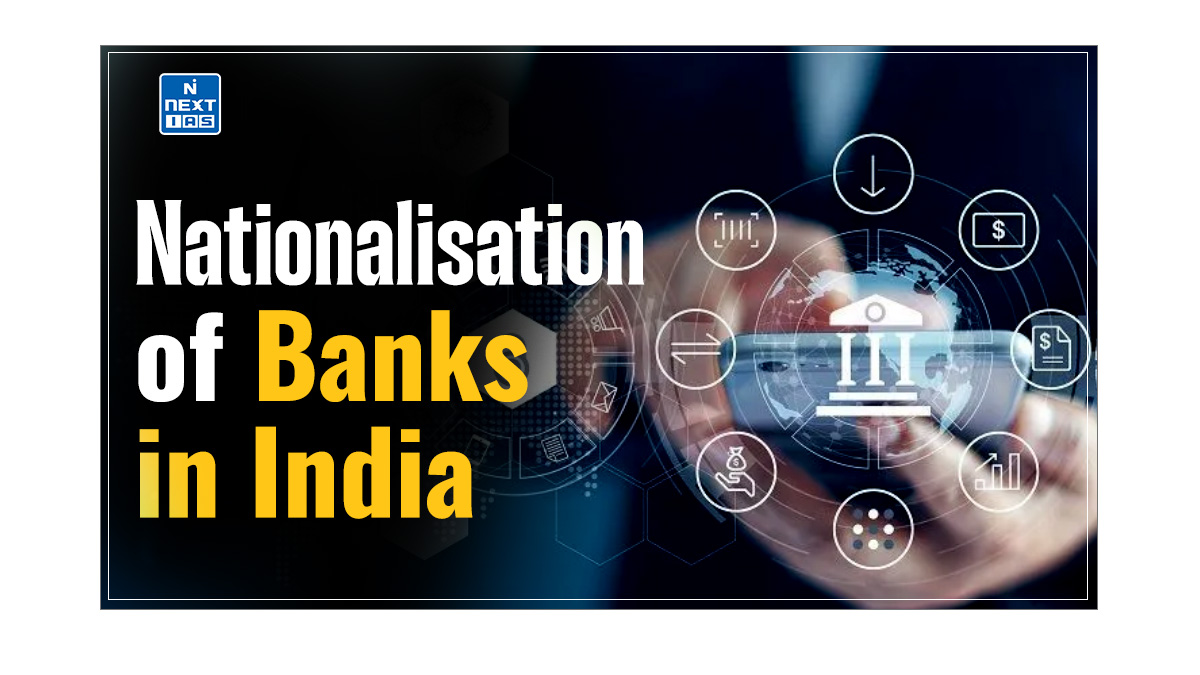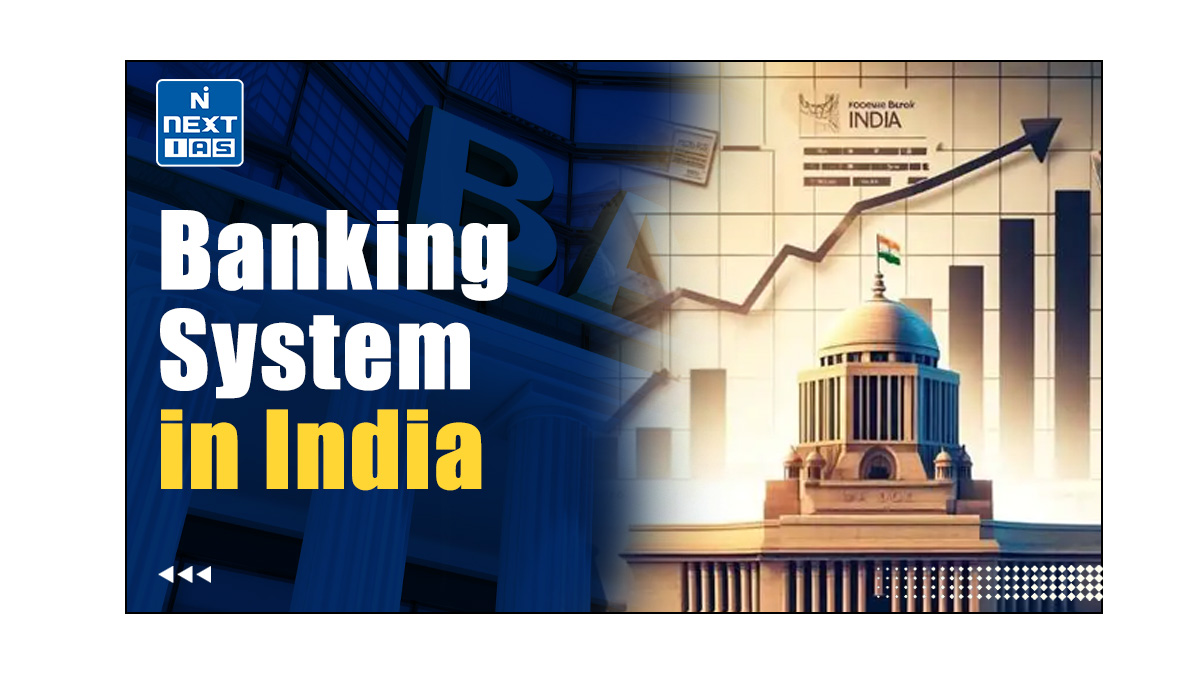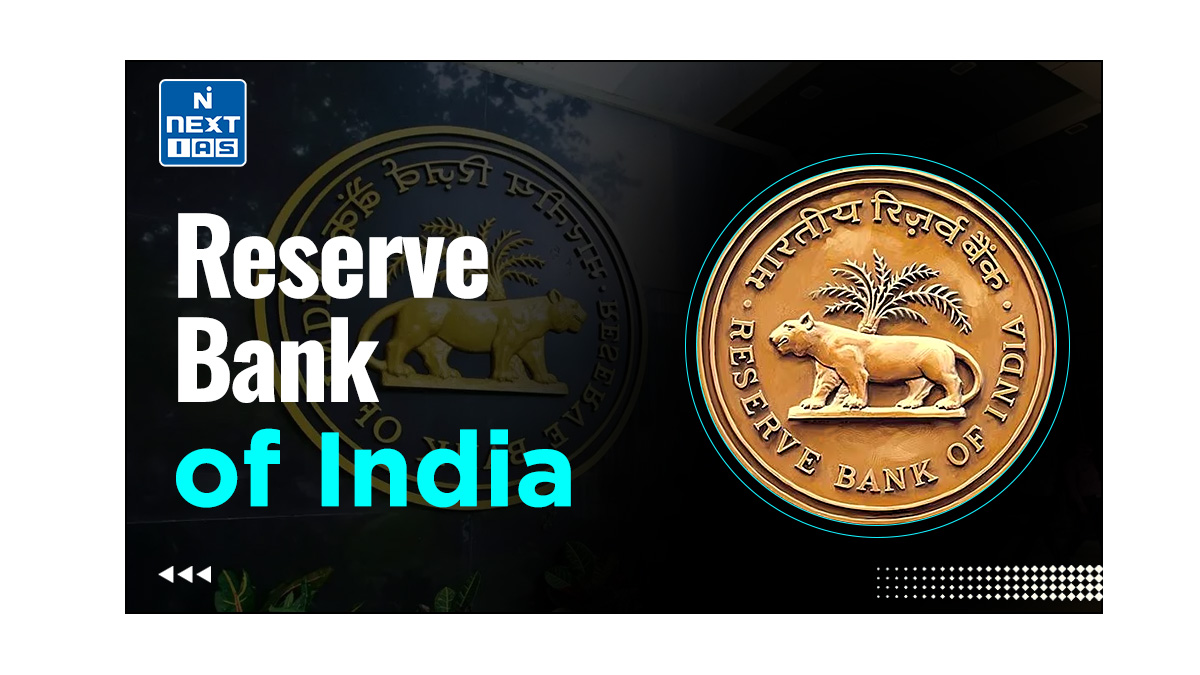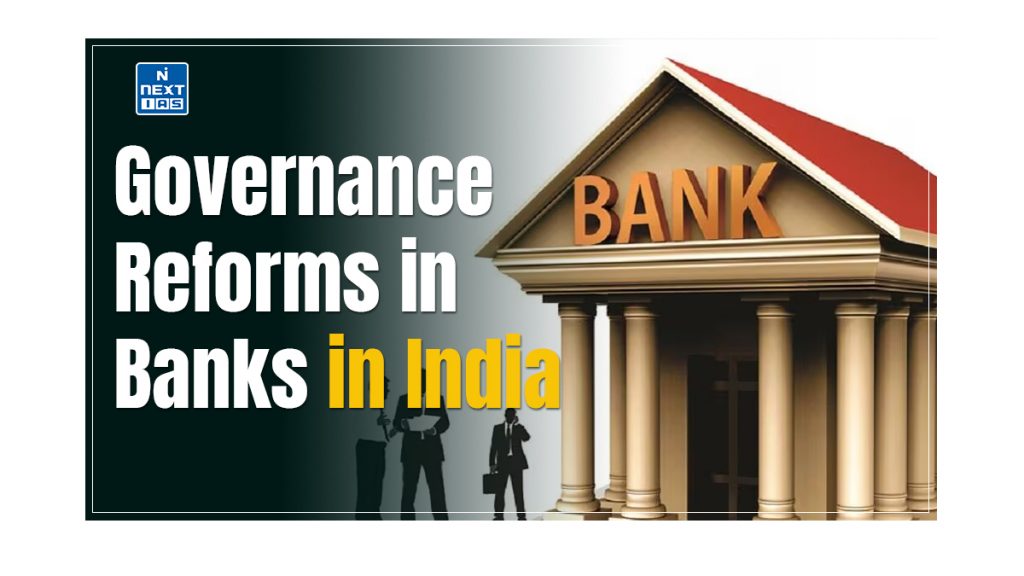
Governance Reforms in Banks in India have been an important part of Banking Sector Reforms in India. Over the years, the Indian banking sector has witnessed significant changes in its governance structure in order to ensure the stability, efficiency, and integrity of the financial system. This article aims to study in detail the Governance Reforms in Banks in India, including key governance issues in PSBs in India and major initiatives taken to improve bank governance.
Governance Issues in Public Sector Banks (PSBs) in India
Public Sector Banks (PSBs) in India are plagued with several governance issues which make Governance reforms in Banks in India necessary. The RBI Committee on Governance of Bank Boards highlighted some major governance issues in the PSBs:
- Concentrate more on tactical issues rather than strategy/risk.
- Board deliberations are driven from the point of view of compliance rather than business economics.
- A general absence of a focussed approach towards the resolution of the problem of NPAs.
- Lack of design of risk mitigation mechanisms.
PJ Nayak Committee on Governance of Bank Boards
PJ Nayak Committee was constituted as a step towards governance reforms in banks in India.
Objectives of PJ Nayak Committee
The P. J. Nayak Committee was constituted by the RBI with the following two major objectives:
- To review the governance of the Board of Banks in India, and
- To make recommendations regarding corporate governance in PSBs.
Recommendations of PJ Nayak Committee
The committee submitted its report on 12th May 2014 and made the following main recommendations:
- Repealing of Some Laws: Scrapping and removal of Bank Nationalisation Acts, SBI Act and SBI (Subsidiary Banks) Act.
- Establishment of Bank Investment Company (BIC): It recommended the formation of a Bank Investment Company (BIC) under the Companies Act 2013 as a core investment company
- The Central Government would transfer its shares in the PSBs to the BIC.
- The BIC would become the holding company of the PSBs, and banks would become its subsidiary companies.
- Establishment of Bank Boards Bureau (BBB): It also recommended the establishment of a Bank Boards Bureau (BBB).
Key Governance Reforms in Banks in India
Some of the key initiatives taken for Governance Reforms in Banks in India include:
- Establishment of a Bank Board Bureau (BBB).
- EASE Reform Agenda
These two reforms have been explained in detail in the sections that follow.
Bank Board Bureau (BBB)
- The government approved the constitution of the Bank Boards Bureau (BBB) in 2016 as a body to make recommendations for appointment of Non-Executive Chairpersons and Full-Time Directors of Public Sector Banks (PSBs) and state-owned financial institutions.
- It is an autonomous recommendatory body.
- As per the Right to Information Act, 2005, the Bank Board Bureau (BBB) is a public authority.
Functions of Bank Board Bureau (BBB)
The major functions of Bank Board Bureau (BBB) include the following:
- To recommend personnel for appointment as directors in government-owned insurance companies.
- Note: The Union Ministry of Finance in consultation with the Prime Minister’s Office takes the final decision on the appointments.
- To engage with the Board of Directors (BoDs) of the Public Sector Banks (PSBs) to formulate appropriate strategies for their growth and development.
- To improve corporate governance at public sector banks, building capacities, etc.
Arguments Against Bank Board Bureau (BBB)
- As per the Nayak committee recommendations, all banks will run only with ‘profit-motive’, no one will setup branches in villages and it would be detrimental to financial inclusion.
- Most of the banking crises in recent times have been because of banks and financial conglomerates outside Government control.
Arguments in Favour of Bank Board Bureau (BBB)
- More professionalism in decision making where bad assets are on the rise and the need for capital is essential.
- The need for capital infusion in PSBs would be reduced.
- Enhanced quality of directors in the bank would improve the governance and accountability of independent directors in decision-making.
Financial Services Institutions Bureau (FSIB)
- The Bank Board Bureau (BBB), established in 2016 as an advisory body to improve the governance and management of public sector banks in India, has now been replaced by the Financial Services Institutions Bureau (FSIB).
- The Financial Services Institutions Bureau (FISB) is intended to build on Bank Board Bureau (BBB)’s efforts but with a broader mandate and enhanced powers.
- It will not only identify and recommend suitable candidates for leadership positions in public sector banks, insurance companies, and financial institutions but will also undertake a range of tasks to enhance governance and efficiency in India’s financial sector.
- FSIB’s role encompasses leadership training, performance evaluations, and the creation of a pipeline of future leaders in the sector.
- This transition from BBB to FSIB reflects the government’s approach to streamlining financial oversight and management, helping to strengthen public-sector financial institutions.
EASE Reform Agenda
- EASE Reform Agenda is a common agenda for governance reforms in banks in India.
- It is aimed at institutionalising CLEAN and SMART banking.
- It was launched in January 2018.
- It was commissioned through the Indian Banks’ Association and authored by Boston Consulting Group.
- It was launched in 4 stages, the latest one being EASE 4.0.
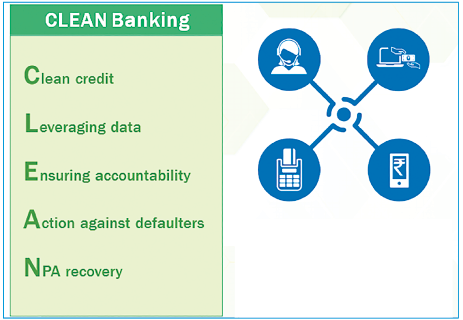

EASE 1.0
The EASE 1.0 report showed significant improvement in PSB performance in resolution of Non-Performing Assets (NPAs) transparently.
EASE 2.0
EASE 2.0 was built on the foundation of EASE 1.0 and introduced new reform Action Points across six themes to including responsible Banking; Customer Responsiveness; Credit Off-take, PSBs as UdyamiMitra (SIDBI portal for credit management of MSMEs); Financial Inclusion & Digitalisation.
EASE 3.0
EASE 3.0 seeks to enhance ease of banking in all customer experiences, using technology viz. Dial-a-loan and PSBloansin59minutes.com, Partnerships with FinTechs and E-commerce companies, Credit@click, Tech-enabled agriculture lending, EASE Banking Outlets etc.
EASE 4.0
- EASE 4.0 commits the Public Sector Banks (PSBs) to ensure tech-enabled, simplified and collaborative banking to further the agenda of customer-centric digital transformation.
- The themes in EASE 4.0 include 24×7 Banking, Focus on North-East, Leveraging Fintech Sector, Export Promotion, Digital Loans to Agricultural Sector etc.
Conclusion
Governance Reforms in Banks in India are critical for ensuring the stability, efficiency, and integrity of the financial system. While significant progress has been made, continuous efforts are required to address emerging challenges and enhance governance standards further. By fostering a culture of transparency, accountability, and risk management, Indian banks can build a robust financial system that supports sustainable economic growth.
GS - 3